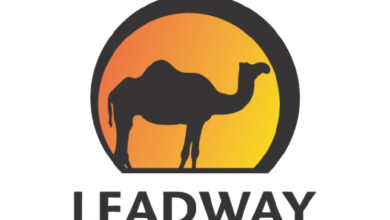Overview Of Insurance Industry In Ghana

By The Underwriter
Insurance is an essential component of any modern economy, protecting against financial loss and uncertainty for individuals and businesses alike. In Ghana, the insurance industry has grown significantly in recent years, driven by a growing economy, increased awareness of the benefits of insurance and regulatory reforms aimed at improving the sector’s stability and efficiency. However, despite this growth, the insurance industry in Ghana still faces several challenges, including low consumer confidence and intense competition among insurers. .
This article, provides an indepth analysis of the landscape of the Ghanaian insurance industry, covering the industry’s size and scope, the types of insurance products available, the competitive landscape, the regulatory environment, challenges, and opportunities, as well as future outlook. It gives a comprehensive understanding of the Ghanaian insurance industry, its strengths, weaknesses, and potential for growth.
Types of Insurance Products Offered
The Ghanaian insurance industry offers a range of insurance products designed to meet the needs of individuals, businesses, and other organizations. These products are broadly categorized under Life and Non-Life Insurance. Here are some of the main types of insurance products available:
Life Insurance
Life insurance is a type of insurance that pays out a lump sum or regular payments to beneficiaries in the event of the policyholder’s death. Life insur[1]ance is important for individuals who want to ensure that their loved ones are financially protected in the event of their untimely death. Life insurance products in Ghana include term life insurance, whole life insurance, and endowment policies. .
Non-Life Insurance
Non-life insurance, also known as general insurance, is a type of insurance that protects against financial loss from events that are not necesserily related to death. Non-life insurance covers a wide range of risks, including damage to property, liability for injury or damage caused to others, and loss of income due to disability or illness.
In Ghana, non-life insurance products are offered by a variety of insurers, including both domestic and foreign companies. Examples of the main types of non-life insurance products available in Ghana are property, liability, motor and marine insurance.
In addition to these main types, there are also specialized insurance products available in Ghana, such as travel insurance and aviation insurance. The diversity of non-life insurance products available in Ghana reflects the import[1]ance of insurance in managing risk and protecting against financial loss for individuals and businesses.
Other Insurances
Micro and Inclusive Insurance
This is a type of insurance designed to provide affordable and accessible insurance coverage to low-income individuals and families, as well as micro-entrepreneurs and small businesses. Microinsurance products typically offer basic coverage for risks that are common in low[1]income communities, such as health issues, death, disability, and crop failure.
Microinsurance is used interchangeably with inclusive insurance.
In Ghana, microinsurance has gained popularity as a means of extending financial protection to the poor and vulnerable. Microinsurance products in Ghana are typically provided by specialized microinsurance providers, as well as by some mainstream insurance companies.
Microinsurance is believed to have the potential to improve the resilience of low-income communities in Ghana by providing financial protection against risks that could otherwise push them deeper into poverty. However, there are still challenges to the development of sustainable and effective microinsurance products in Ghana, such as a limited understanding of insurance among low-income individuals and inadequate infrastructure for the delivery of micro[1]insurance products.
Pensions and Health Insurance
Aside from the above-mentioned products which are regulated by NIC, there are other insurances such as Health Insurance and Pensions which are regulated by separate entities.
Health Insurance
Health insurance provides financial protection against the costs of medical treatment and related expenses. Health insurance is particularly important in Ghana, where healthcare costs can be high, and access to quality healthcare can be limited.
Health insurance products in Ghana include individual health insurance, group health insurance, and government-sponsored health insurance schemes. All activities relating to health insurance are regulated by the National Health Insurance Authority (NHIA).
Pensions
Pensions in Ghana are an important part of the social security system, pro[1]viding financial support to retired individuals, their dependents, and those with disabilities. The country’s pension system is managed by the Social Security and National Insurance Trust (SSNIT), which is a statutory public trust established by an Act of Parliament in 1991.
SSNIT is responsible for the collection, management, and payment of contributions for the country’s mandatory pension scheme, which covers all formal sector workers, including self employed persons. The contributions are made up of 13.5% of an employee’s basic salary, with 5.5% contributed by the employee and 8% contributed by the employer.
The mandatory pension scheme provides a basic retirement benefit, which is calculated based on the employee’s total contributions and the number of years of service. The minimum qualifying period for the benefit is 180 months or 15 years of contributions.
The maximum qualifying period is 420 months or 35 years of contributions. The minimum retirement age is 60 years, and the maximum age is 70 years.
In addition to the mandatory pension scheme, SSNIT also manages other pension schemes, including the National Pension Scheme (NPS), which is a voluntary contributory scheme for individuals who are not covered by the mandatory scheme. The NPS allows individuals to make additional contributions to their retirement savings and to receive tax benefits.
There are also private pension schemes in Ghana, which are managed by insurance companies and other financial institutions. These schemes are regulated by the National Pensions Regulatory Authority (NPRA), which was established by an Act of Parliament in 2008.
Despite the availability of these pension schemes, there are still challenges facing the pension system in Ghana. One of the major challenges is the low level of coverage, as many individuals in the informal sector are not covered by any pension scheme.
Another challenge is the inadequacy of benefits, as the basic retirement benefit provided by the mandatory scheme may not be enough to meet the needs of retirees.
To address these challenges, the government and other stakeholders are working to improve the coverage and adequacy of pensions in Ghana.
This includes measures such as expanding the coverage of the mandatory scheme to the informal sector and increasing the level of contributions to the schemes.
Market Shares and Competition
The insurance industry in Ghana is highly competitive, with several major players vying for market share. According to the latest information available to the Ghana Insurers Association (GIA), there are a total of 43 registered and licensed insurance companies in Ghana as of May 2023. They comprise 18 life insurance companies, 27 non-life insurance companies 3 reinsurance companies and one reinsurance contact office. These companies offer a wide range of insurance products and services, including life, non[1]life and reinsurance services. According to the 2021 NIC report, the current market share of the five major insurance companies in Ghana collectively constitute more than 70% of the industry’s total premiums.
The competitive landscape of the insurance industry in Ghana is shaped by several factors, including the quality of products and services offered, pricing strategies, distribution channels and regulatory environment.
Insurance companies in Ghana are constantly innovating and adapting to changes in the market, with focus on meeting the evolving needs of customers.
In recent years, there has been an increased focus on technology and digital innovation in the insurance industry. Insurance companies are leveraging technology to improve customer experience, streamline processes and enhance efficiency. This trend is expected to continue. The market is characterized by a focus on quality products and services, innovation, and adaptation to changing market conditions.
Regulatory Environment
The industry is regulated by the National Insurance Commission (NIC), which was established in 1992 under the Insurance Law (PNDC Law 227) which has since been amended. NIC is responsible for regulating, supervising and promoting the development of the insurance industry in Ghana. Its miss[1]ion is to ensure that the industry offer a wide range of insurance products and services, including life, non[1]life and reinsurance services. According to the 2021 NIC report, the current rates in a manner that protects policyholders and promotes the growth of the industry.
NIC’s regulatory responsibilities include the licensing and registration of insurance companies, approval of insurance products, monitoring of solvency and capital adequacy and the enforcement of compliance with insurance laws and regulations. NIC also has a mandate to promote public awareness of insurance and to protect the interests of policy[1]holders. .In recent times, there have been several regulatory reforms and initiatives aimed at strengthening the regulatory framework for the insurance industry. One of the most significant changes was the passage of the Insurance Act 2021 (Act 1061), which repealed the then Insurance Act 2006 (Act 724) and introduced several new provisions aimed at improving the regulation and supervision of the industry.
Under the new Act, NIC has broader powers to regulate and supervise the industry, including the power to impose fines and penalties on non-compliant companies. Insurance Act 2021 (Act 1061) also requires insurance companies to maintain higher levels of capital adequacy, to ensure that they are better able to meet their obligations to policyholders.
Another recent regulatory initiative has been the introduction of the Risk-Based Supervision (RBS) framework. The RBS framework is a more risk-focused app[1]roach to supervision, which requires insurance companies to assess their own risks and develop .strategies to manage them. This approach is intended to help NIC identify potential risks and take appropriate action to mitigate them.
In addition to these regulatory reforms, NIC has also introduced several initiatives aimed at promoting innovation and digitalization in the insurance industry. For example, NIC has launched a digital portal for Motor Insurance known as the Motor Insurance Data[1]base (MID). The aim is to improve motor insurance revenue by drastically reducing the incidence of fake motor insurance.
Overall, the regulatory environment for the insurance industry in Ghana is characterized by a strong focus on protecting policyholders and promo[1]ting the growth and development of the industry. Recent regulatory changes and initiatives have been aimed at strengthening the regulatory frame[1]work and promoting innovation and digitalization in the industry. NIC’s role in regulating and supervising the industry is critical to ensuring that insurance companies operate in a manner that is safe, stable, and beneficial to policyholders.
Challenges and Opportunities
Despite the potential for significant growth in Ghana’s insurance industry, several challenges are currently hindering its progress. One of the most significant obstacles is the low level of insurance penetration and awareness among the general population. According to the African Development Bank’s report, insurance penetration in Ghana was a mere 1.7% of GDP in 2019.
Moreover, the 2021 NIC report shows that this figure has declined to 1%, which is considerably lower than the global average penetration rate of 6.8% reported by Statista and the African average of 3.17% reported by Atlas Magazine. However, some industry players argue that the insurance penetration rate in Ghana could be estimated at 3% if health insurance and pensions are included in its computation, as is done in other African countries like Kenya and South Africa.
This low level of insurance penetration can be attributed to several factors, including low levels of financial literacy, limited access to insurance products, and a lack of trust in the insurance industry. Many Ghanaians are not familiar with the benefits of insurance and do not understand how insurance products work. Additionally, insurance products are often perceived as being expensive and only accessible to the wealthy, which further limits the market for insurance products.
Despite these challenges, there are also several opportunities for growth in the insurance industry. One of the biggest opportunities is the increasing demand for insurance products due to the growing economy. As more Ghanaians become economically active and begin to accumulate wealth, they will need to protect their assets and mitigate financial risks, which creates a natural demand for insurance products.
There is a significant opportunity to expand the range of insurance products offered in Ghana beyond the traditional areas of life, health, and property insurance. Developing new products that are tailored to the needs of specific industries or sectors, such as agriculture or transportation, could unlock untapped potential in the market.
Moreover, as the country continues to digitize and adopt new technologies, there is a growing demand for products like cyber insurance that could provide much needed protection against data breaches and fraudulent activities. Insurers are risk-takers, and it is crucial for Ghanaian insurance companies to capitalize on this opportunity and develop products that meet the needs of individuals and businesses in the digital space. .
Finally, there is an opportunity to leverage technology to increase insurance penetration and awareness in Ghana. Digital platforms and mobile technologies are increasingly being used to deliver insurance products and services to customers, which has the potential to make insurance more accessible and affordable to a larger segment of the population. .
In a nutshell, while there are significant challenges facing the insurance industry in Ghana, there are also significant opportunities for growth. Addressing the low levels of insurance penetration and awareness, improving regulatory enforcement, and leveraging technology to increase accessibility and affordability are all key to unlocking the potential for growth in the industry.
Innovation and Technology
Technology is rapidly transforming the insurance industry in Ghana, especially in the areas of distribution and claims processing. One of the most significant technological advances in recent years has been the use of mobile technology for insurance distribution and claims processing. This has enabled insurers to reach previously underserved populations and has the potential to increase insurance penetration and awareness in Ghana.
Mobile technology has made it possible for insurers to offer insurance products and services directly to customers through their mobile devices. This has made insurance more accessible and affordable to a larger segment of the population, especially those in rural areas who may not have access to traditional insurance channels.
Customers can use their mobile devices to purchase insurance policies, pay premiums, and file claims, which has streamlined the entire insurance process and reduced the need for customers to visit physical offices. Mobile technology has also enabled insurers to leverage data analytics to better understand customer needs and preferences. This has enabled insurers to develop more targeted and personalized insurance products and services, which has helped to increase customer satisfaction and retention.
Another way technology is transforming the insurance industry in Ghana is through the use of artificial intelligence (AI) and machine learning. These technologies are being used to improve risk assessment and pricing, which has helped insurers to better manage their risk and reduce losses. For example, insurers can use AI and machine learning algorithms to analyze large amounts of data to identify patterns and trends that can be used to make more accurate underwriting decisions.
Technology is also being used to improve claims processing and settlement. Insurers can use mobile Apps to allow customers to file claims directly from their mobile devices, leading to a significantly reduced time for process and settling claims. Additionally, insurers can use AI and machine learning to automate claims processing and reduce the need for manual intervention, thereby streamlining the claims process.
Technology is transforming the insurance industry in Ghana in many ways, especially in the areas of insurance distribution and claims processing.
The use of mobile technology, AI, and machine learning has helped to increase insurance penetration and awareness, improve risk assessment and pricing, and streamline claims processing and settlement times. As technology continues to evolve, we will likely see even more transformative changes in the insurance industry in Ghana and around the world.
Consumer Education and Protection
Consumer education and protection are crucial in the insurance industry as they ensure that consumers are informed, empowered and protected against unfair practices, thereby promoting trust and confidence in the industry. In an industry that deals with risk, uncertainty and potential loss, consumer education is particularly important to ensure that consumers understand the nature of insurance, the products and services being offered, as well as their rights and obligations.
One of the steps that insurance companies and regulators are taking to promote consumer education and protection is through awareness campaigns and information dissemination.
Insurance companies are mandated by law to provide customers with clear and concise information about their products and services, including the terms and conditions of policies, benefits, exclusions, and premiums. They are also required to ensure that customers understand the insurance pro[1]ducts they are buying, and the risks they are insuring against.
NIC has taken several steps to promote consumer education and protection. For instance, NIC has established consumer education programs aimed at raising awareness and educating consumers about insurance products, and their rights and obligations under the law. Additionally, NIC regularly publishes guidelines, regulations and codes of conduct to ensure that insurance companies operate in a fair and transparent manner.
Another step being taken by NIC to protect consumers is the introduction of the Claims Payment and Administration Regulations. These regulations provide guidelines for insurers to follow when processing and paying claims, ensuring that consumers are treated fairly and timely. .
Other Industry Bodies
In addition to regulatory measures, various industry bodies have played significant roles in promoting consumer education and protection in Ghana’s insurance industry. The Ghana Insurance Association (GIA) has conducted several awareness campaigns. While its Self-regulatory regime has given birth to the Complaint Management and Advice Bureau (CMAB), which provides a platform for customers to lodge complaints and seek professional advice on insurance. The Insurance Awareness Coordinators Group (IACG), formed by various stakeholders, is responsible for coordinating insurance awareness activities in the industry.
Furthermore, bodies such as the Insurance Brokers Association of Ghana (IBAG), the Chartered Insurance Institute of Ghana (CIIG), and the Ghana Insurance College (GIC) have made significant contributions to this cause. In summary, consumer education and protection are critical in the insurance industry in Ghana. Insurance companies and regulators have a responsibility to ensure that consumers are informed and empowered to make informed decisions about their insurance needs and that they are protected from unfair practices. Through awareness campaigns, information dissemination, and regulatory frameworks, Ghana’s insurance industry can continue to promote trust, confidence, and growth in the industry.
Future Outlook
The future of the insurance industry in Ghana looks promising, with several growth opportunities and emerging trends that are likely to shape the industry in the coming years. Some of the potential growth areas and trends to watch for include:
Digitization
The insurance industry in Ghana is increasingly embracing technology, which is transforming the way insurers interact with their customers. Digitization is expected to drive growth by increasing efficiency and accessibility, reducing operational costs and improving customer experiences. Insurers are leveraging technologies such as artificial intelligence, blockchain, and data analytics to enhance underwriting, claims processing, and risk management.
Micro and Inclusive insurance
Micro-insurance is an area that is gaining traction in Ghana due to its potential to reach previously underserved markets. With a high percentage of the population engaged in informal economic activities, micro[1]insurance offers a viable solution for individuals who may not have access to traditional insurance products.
Insurers are developing innovative micro-insurance products that are affordable, accessible and tailored to meet the specific needs of this market.
Health Insurance
Health insurance is an area that is expected to see significant growth in Ghana due to the increasing demand for quality healthcare. The government’s introduction of the National Health Insurance Scheme (NHIS) has already paved the way for private insurers to develop complementary health insurance products that offer additional coverage to policyholders.
Agriculture Insurance
Agriculture is a vital sector in Ghana’s economy, and agriculture insurance is an area that presents significant growth opportunities. With climate change and unpredictable weather patterns affecting crop yields and income, agriculture insurance can provide farmers with a safety net to manage the risks associated with farming.
In response to changing market conditions and emerging technologies, the insurance industry in Ghana is likely to evolve in several ways. Insurers will need to adopt a customer centric approach and offer innovative and flexible products that meet the evolving needs of customers. With the increasing use of technology, insurers will need to embrace digital transformation and develop a strong online presence to remain competitive. .
Furthermore, insurers will need to focus on improving customer experience through efficient claims processing and personalized service delivery. As more players enter the market, insurers will need to differentiate themselves through innovative products, com[1]petitive pricing, and excellent custo[1]mer service.
The insurance industry in Ghana is poised for growth, with several opportunities and emerging trends that are likely to shape the industry’s future.
Insurers that embrace digitization, offer innovative products, and provide excellent customer service are likely to emerge as leaders in this dynamic and rapidly evolving industry.
Conclusion
In conclusion, the insurance industry in Ghana is a vital sector that plays a significant role in the country’s economic growth and development. The industry has come a long way, with the introduction of Act 1061, which makes room for innovation and growth.
Despite the progress made, the industry still faces several challenges such as low levels of insurance penetration, and negative consumer perception. However, there are also significant opportunities for growth, including the increasing demand for insurance products due to the growing economy, and the emergence of microinsurance, health insurance, and agriculture insurance.
Technology is also transforming the industry, with insurers leveraging digitization to improve efficiency, accessibility, and customer experience.
The future of the industry in Ghana looks promising, with insurers that embrace innovation, customer-centricity, and excellent service delivery well-positioned to emerge as leaders. Going forward, insurers and regulators must work together to address the challenges facing the industry and ensure that consumers are informed and protected. By doing so, the insurance industry in Ghana can continue to grow and contribute to the country’s overall economic development.
Culled from The Underwriter, the Official Journal of the Ghana Insurers Association





